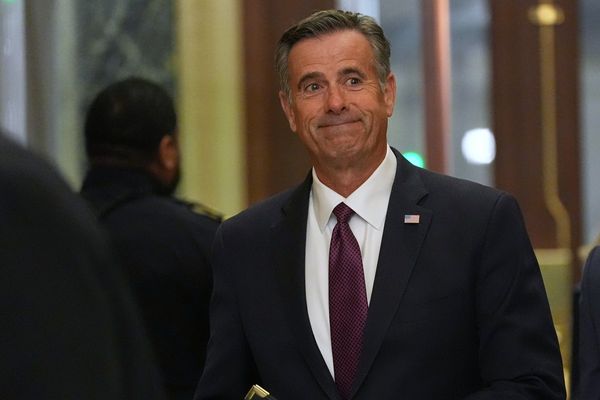
Sen. Elizabeth Warren (D-Mass.) slammed President Donald Trump for his wishes on National Coffee Day on Monday, while his chaotic trade and tariff policies result in a surge in coffee prices.
‘Chaotic Tariffs’ Lead To Surge In Coffee Prices
On Monday, in a post on X, Warren said, “Donald Trump is wishing everyone a happy National Coffee Day,” while noting that his “chaotic tariff” policies have led coffee prices to surge by “over 20%.”
The National Coffee Day is on Sept 29. celebrates coffee as a beverage, with several brands and coffee houses across the country offering extensive deals and freebies for consumers.
Warren’s criticism comes amid Brazil and Colombia, which together account for 80% of America's coffee imports, face steep tariffs that analysts say are only now beginning to hit U.S. consumers. Colombian coffee currently carries a 10% tariff, while imports from Brazil are subject to a 50% levy.
See Also: Trump’s 100% Drug Tariff Will Hit Americans, Economist Says Buyers ‘Eat The Cost,’ Not Foreign Firms
In July, Trump imposed 50% tariffs on Brazilian imports, while accusing the nation of “insidious attacks on Free Elections,” and criticizing the trial of former Brazilian President Jair Bolsonaro, which he referred to as “a Witch Hunt that should end IMMEDIATELY.”
Trump also said that Brazil’s trade practices have resulted in “unsustainable Trade Deficits against the United States,” despite the fact that the U.S. has a trade surplus with the South American nation, according to data from the U.S. Trade Representative.
Coffee Tariffs Are ‘Literally A Tax On Americans’
Economist Justin Wolfers of the University of Michigan called out the tariffs imposed on coffee, saying that it is “literally a tax on Americans,” since the coffee cannot be grown domestically. “We can’t bring the coffee industry back to the United States, nowhere near enough,” he said.
Last month, Rep. Ro Khanna (D-Calif.) announced plans for a bipartisan legislation aimed at repealing the tariff on coffee imports. Khanna said that the United States produces “less than 1%” of the coffee that it consumes, making the tariffs a significant financial burden on consumers.
Photo Courtesy: Bryan J. Scrafford on Shutterstock.com
Read More:







